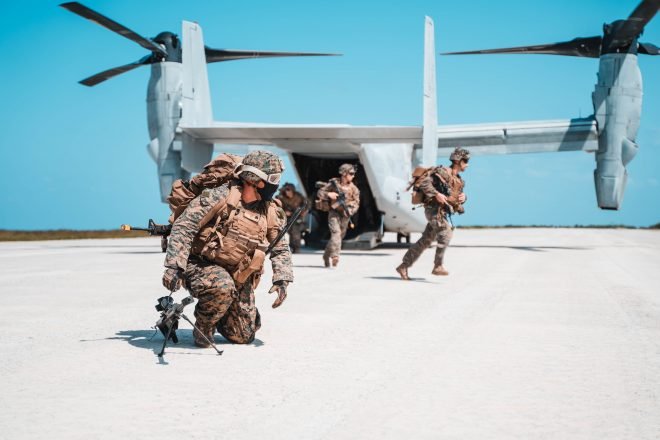A total of 2200 US Marines have been deployed to Darwin as part of MRF-D.

A US Marine who arrived in the Territory as part of the first tranche of Marine Rotational Force - Darwin has tested positive for coronavirus.
The 21-year-old man, who arrived on an international flight to the Northern Territory on Thursday, February 11, tested positive to COVID-19 in the past 24 hours.
The man is asymptomatic and has been moved from quarantine to Royal Darwin Hospital, in line with established procedures.
The Department of Chief Minister and Cabinet said that “due to strict quarantine measures in place for all arriving Marines”, the case was “promptly detected” and the Marine “had no direct contact with the general community”.
Since the pandemic began, there have been 104 cases of COVID-19 diagnosed in the NT, including 65 from international repatriation flights.

While the first two groups of marines will undertake their fortnight of quarantine in accommodation on Defence bases, further groups will be taken to Bladin Village, a privately owned former detention centre outside of Darwin.

The Marine Corps is slated to stand up the first MLR in FY 2022

The arrival of the 2021 cohort will be the 10th annual rotation of US marines in Darwin.
